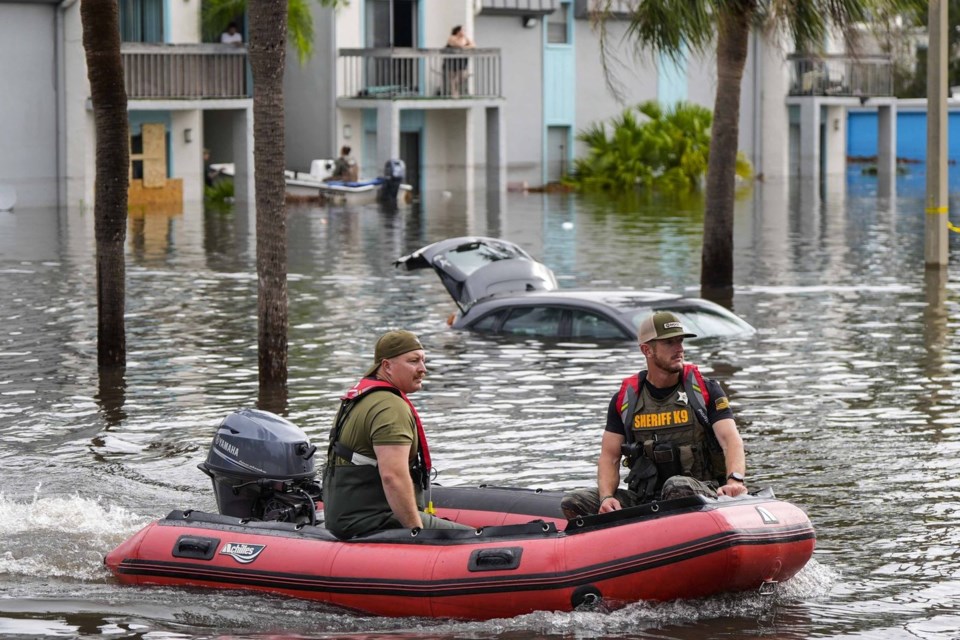The National Oceanic and Atmospheric Administration said Monday it is delaying by one month the planned cutoff of satellite data that helps forecasters track hurricanes.
Meteorologists and scientists warned of severe consequences last week when NOAA said, in the midst of this year’s hurricane season, that it would almost immediately discontinue key data collected by three weather satellites that the agency jointly runs with the Defense Department.
The Defense Meteorological Satellite Program’s microwave data gives key information that can’t be gleaned from conventional satellites. That includes three-dimensional details of a storm, what's going on inside of it and what it is doing in the overnight hours, experts say.
The data was initially planned to be cut off on June 30 “to mitigate a significant cybersecurity risk,” NOAA’s announcement said. The agency now says it's postponing that until July 31. Peak hurricane season is usually from mid-August to mid-October.
NOAA didn't immediately respond to a message seeking more details about the reason for the delay. The Navy confirmed the new date and said only that the "program no longer meets our information technology modernization requirements.”
NOAA — which has been the subject of hefty Department of Government Efficiency cuts this year — said Friday the satellite program accounts for a “single dataset in a robust suite of hurricane forecasting and modeling tools” in the National Weather Service's portfolio.
The agency's “data sources are fully capable of providing a complete suite of cutting-edge data and models that ensure the gold-standard weather forecasting the American people deserve,” a spokesperson said.
But Union of Concerned Scientists science fellow Marc Alessi told The Associated Press on Friday that detecting the rapid intensification, and more accurately predicting the likely path, of storms is critical as climate change worsens the extreme weather experienced across the globe.
“Not only are we losing the ability to make better intensification forecasts, we are also losing the ability to predict accurately where a tropical cyclone could be going, if it’s in its development stages,” Alessi said. "This data is essential.
“On the seasonal forecasting front, we would see the effects," he added, "but also on the long-term climate change front, we now are losing an essential piece to monitoring global warming.”
___
Alexa St. John is an Associated Press climate reporter. Follow her on X: @alexa_stjohn. Reach her at [email protected].
___
Read more of AP’s climate coverage at http://www.apnews.com/climate-and-environment
___
The Associated Press’ climate and environmental coverage receives financial support from multiple private foundations. AP is solely responsible for all content. Find AP’s standards for working with philanthropies, a list of supporters and funded coverage areas at AP.org.
Alexa St. John, The Associated Press



